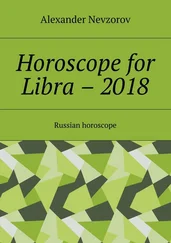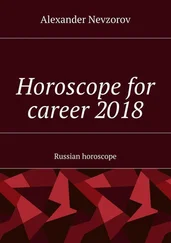I decided to ignore this order and take a fiat first and argue about it afterwards. After some difficulty I managed to find a suitable one in a big block at 2 Chemin de Longeraie. It was self-contained and sufficiently commodious, so I was independent of the rest of the world. It also had the advantage of being alone at the end of a short corridor so that I could hear the footsteps of anyone approaching, thus allowing a minute's grace before the doorbell rang.
Having installed myself, the next thing was to install the transmitter, which I had brought over from Geneva, wrapped up in my dirty laundry. It was in the highest degree unlikely that anyone would stop and search me or my baggage, but the extra precaution cost little. The fiat was admirably suited, in another way, for my less legal purposes, as it was but one floor from the top, and the roof of the block overtopped all the neighbouring buildings. Ideal as the setup was, it still took me almost three months to establish contact with Moscow.
Most accounts of spies and secret activities skate lightly over the purely physical routine difficulties of the trade. Such accounts are generally concerned with the details of the hero's cunning in outwitting the activities of the police. In real life, once the police are really after you, there is little you can do to avoid them. The average spy hopes to avoid police notice rather than to evade it once it is awakened. His real difficulties are concerned with the practice of his trade. The setting up of his transmitter, the obtaining of his funds, and the arrangement of his rendez-vous. The irritating administrative details occupy a disproportionate portion of his waking life- and cut unwarrantably into his hours of sleep.
I had my flat and I had my transmitter, and the rest should have been easy. Unfortunately, here I came up against Swiss rules and regulations. There was a ban on the erection of any kind of external aerial on a building. Sonia had not encountered this problem, as a wire strung over the roof of her chalet at Caux out in the country would have excited no notice and, if it had, little comment. Not so in the heart of Lausanne. Again I decided to take the legal bull by the horns- or rather in this case ignore his existence altogether. Adopting the air of an idiot and foreign child, I went to a wireless shop nearby and explained that I wished them to erect an aerial for my wireless set in my fine new flat. I explained, unnecessarily, as my French accent was not impeccable by any means, that I was English and, exiled as I was from my own country for the period of the war, I was naturally anxious to keep in the closest touch with events at home and therefore wanted to listen to as many English broadcasts as possible. I explained that as my French was bad the short-wave continental broadcasts were not satisfactory and anyway they were designed for foreign consumption. I wished to listen to the medium-wave broadcasts put out by the B.B.C. for the English themselves, and these I could not get on my set with an indoor aerial. I do not know to this day whether my set with the aerial I eventually got would have enabled me to hear the ordinary B.B.C. home programme - nor, indeed, whether I could not have heard it anyway with an ordinary indoor aerial strung round my room. Luckily the mechanic in the shop was equally ignorant- or supremely indifferent - and after the usual delays which afflict workmen all over the world when labour is in short supply, he consented to come round and try to fix something up.
On his arrival a new and unexpected difficulty presented itself. The honest little man had apparently fallen for my story in a big way and was determined, law or no law, that I was to have the best aerial Switzerland could provide to enable me to listen to the programmes of my choice and of my native country. He had brought with him a large and superior aerial with every known device and side wire designed to cut out all possible interference. This would have been delightful had I really wanted to listen to the home news from London but quite disastrous for transmitting home news to Moscow. All I needed was a straight aerial of the right length with no devices to frustrate les parasites (as the French so delightfully call interference). In fact, in my own small way I desired to increase the number of parasites on the air by my own efforts. Ultimately, after endless explanation and liberal administrations of whiskey (of which luckily I had a large stock), I managed to get him to erect a straight aerial to suit my purpose. I do not think that he suspected anything. He went away quite certain that the English were, as he had always been told, quite mad; but he had enough scotch inside him to allay his suspicions.
I took the precaution, for a week or so, of hiding the parts of my transmitter carefully in the flat: one piece in the mattress of my bed and another behind the bath, just in case I had been denounced and was raided. Nothing so drastic happened, though I did receive a visitor who arrived most opportunely during this period, when my flat had an appearance of absolute innocence and my actions were those of the character I was pretending to be- an Englishman, stranded in Switzerland by the war, with ample leisure and ample funds. Lausanne was full of such, ranging from the genuine, stranded resident or refugee down to the frank embusque who had no intention of returning to England and military service and every intention of passing a comfortable and neutral war. I attempted to steer a graceful course between both extremes, my air of respectability being counteracted by my being obviously of military age.
The bell rang one evening and I opened the door to a polite, solid gentleman in the plainest of plain clothes who in no country in the world could have been anything other than what he was- a policeman in mufti. On such occasions as this the best course is to leave all the running to the other person- especially as I was conscious that only the minutest search of the place would show anything suspicious and that my papers, which I showed him, were in perfect order. He took the proffered seat and cigar and explained, in the politest way, that there was an ordinance that forbade foreigners to rent apartments, and perhaps I would be good enough to explain myself. I decided that a mild bluff and an appeal to Swiss cupidity was the only possible course. I explained that I had not been aware of the order when I took the apartment and had only learnt of it too late. I added that I understood that the main reason was to ensure that the hotels remained full and that there was no diminution of the revenue to the Swiss national exchequer from foreigners. I was perfectly prepared to give up the flat, inconvenient as it would be, and retire to a hotel, but felt that I must point out that it was an expensive flat in an expensive block of flats and that I was spending far more occupying it than I would living quietly en pension in a hotel. I was a man of some means and simple pleasures and I was sorry that the means of gratifying them, namely by living alone in a flat rather than crowded into a hotel, were to be denied me, especially as any change in my present mode of life would decrease the flow of sterling from my pocket into the Swiss coffers.
I hardly hoped that the line would work, but I put it over with all the conviction I could and reinforced it with another dose of my invaluable whiskey. Swiss thrift overcame police prudence. He asked me if I would be prepared to divulge my financial position. With a show of some reluctance at having to produce such private matters I explained that I was in receipt of sixty-five pounds a month from England and in addition had a balance of some fifteen thousand Swiss francs in the bank. I added that I was of course prepared to have this investigated if he so desired, but naturally I would prefer to avoid the possible embarrassment of police enquiries of my bank manager. He was kind enough to accept my word and pressed for no more factual details. This was, on the whole, as well since my total finances at that moment amounted to five hundred dollars which I had in my pocketbook. The network was then in low financial water and the monthly remittance and the substantial balance were figments of my fancy.
Читать дальше












